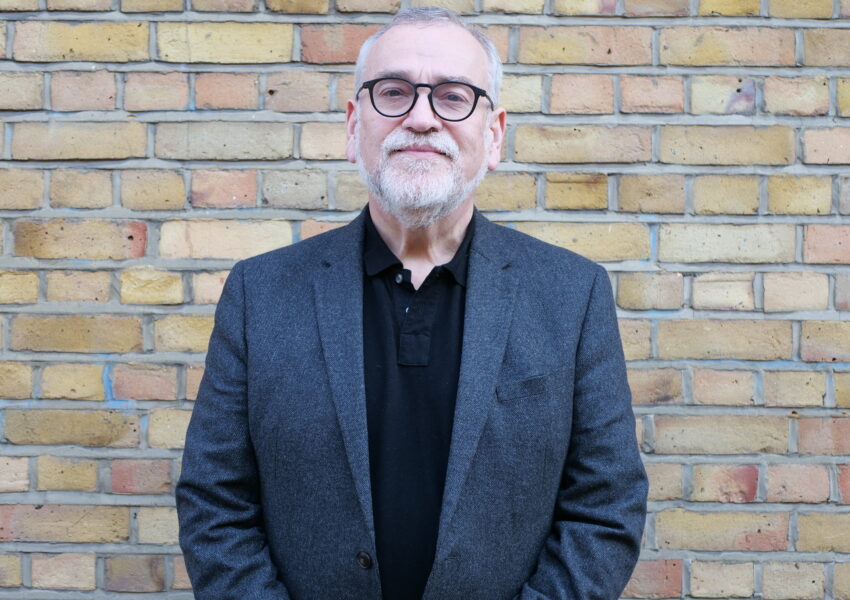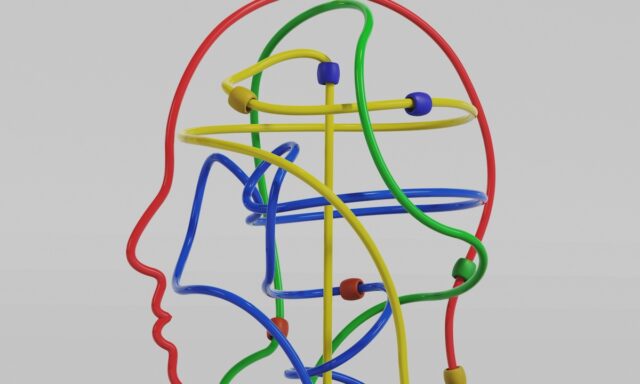Brilliant basics: Joe Rafferty on why focus should be on doing what works, well
07 April 2025

After decades in NHS leadership, Joe Rafferty believes the future of mental health crisis care lies not in disruption, but in doing the fundamentals better — consistently, compassionately and at scale. Now working with Thalamos as an expert advisor, he shared his philosophy for system-wide improvement and the practical steps we can take to get there.
At Thalamos, we believe the best way to drive lasting change in mental health care is to focus on the brilliant basics. This means doing the fundamentals so well that everything else can flow from them.
That’s why we’re thrilled to welcome former Mersey Care NHS Foundation Trust CEO Joe Rafferty CBE as an advisor to our team. He brings more than 35 years of experience across the NHS, including over a decade leading one of the country’s most respected and forward-looking mental health providers. His decision to work with Thalamos reflects a shared belief: that real improvement in crisis care will come not just from bold new ideas, but from executing the essentials brilliantly — and doing so at scale.
Rafferty told us that what impressed him most was that Thalamos is “not just a tech company looking for a healthcare market”. He sees it as a values-led organisation, building something designed to fix a real problem — how we apply the Mental Health Act in moments of crisis. He described his early conversations with the team as energising, adding that he saw “a clear link” between the Thalamos values and its product. “That’s rare,” he added. “Many digital organisations claim to be purpose driven. But here, I could see it in the culture, the conversations and the work itself.”
Why Thalamos
After stepping down from Mersey Care in 2024, he was deliberate about how and where he wanted to contribute next. For him, it was never about staying busy. It was about continuing to make a difference in an area that matters.
“I wanted to work with a team creating solutions to complex problems,” he explained. “The application of the Mental Health Act is often slow, complicated and inconsistent — especially when someone is in crisis. That’s not good enough. What Thalamos is building isn’t just a tool. It’s a sharp, effective response in moments where people need protection, not bureaucracy.”
Rafferty was also struck by our approach to action, not just ideas. “There’s no shortage of thought leadership in this space. But what really matters is doing. The best organisations don’t just write reports. They make things work better for patients.”
A shared view
Rafferty brings a hard-earned, honest perspective on the state of crisis care in England. He’s clear that while there are pockets of brilliance, too much of the system is still falling short.
“Some areas have made extraordinary progress,” he said. “Others are stuck. We’re still sending people hundreds of miles from home in moments of crisis. We’re still failing to spread brilliant ideas from one Trust to the next. If that was happening in physical health, it wouldn’t be tolerated.”
He pointed particularly to that deeper problem of “what works” often remaining trapped within individual organisations, unable to scale across the system. “What’s missing is a way to make the right thing the easy thing to do,” he told us. “No two crises are the same. But our response needs to be consistent, coordinated and grounded in the law. That’s what Thalamos is working towards.”
This is where the Thalamos focus on structured, digital workflows comes in. By giving professionals the tools they need to apply the Mental Health Act safely, efficiently and accurately, we’re supporting them to do their jobs — not adding burden.
“We talk a lot about transformation in mental health. But the biggest transformation is often just getting the fundamentals right.”
Do the basics brilliantly
Rafferty’s emphasis on “brilliant basics” isn’t just a soundbite. It’s a strategy. “We talk a lot about transformation in mental health,” he commented. “But the biggest transformation is often just getting the fundamentals right.” That includes applying the Mental Health Act legally and consistently, having accurate information available at the point of care, and making sure patients are treated in a timely and compassionate way.
He believes the potential for technology to improve outcomes lies in its ability to embed those basics into everyday practice. “This isn’t about replacing clinical judgment,” he said. “It’s about supporting it — making it easier to do the right thing, backed by accurate information and streamlined processes.”
That alignment is exactly why he is joining Thalamos. We’re building the infrastructure to make applying the Mental Health Act swifter, simpler, safer and more consistent. In doing so, we’re helping services raise the floor of care delivery across the system.
Experience to move better
One of the biggest barriers to innovation in the NHS is understanding how the system really works. Rafferty’s experience navigating its complexity is invaluable to us — and to our existing and future customers.
“Too many companies don’t realise just how complex the NHS is,” he added. “You’re not selling a tool. You’re asking someone to change how they work — often under huge pressure and professional risk.
He also knows how easy it is for well-intentioned innovation to get lost in the system. “What often stalls progress is the sense that every procurement means going back to square one,” he explained. “And most vendors aren’t ready for that. What you need is implementation empathy. It’s a true partnership approach.”
That’s exactly how we work at Thalamos. We see every new customer as a long-term partner. Our job isn’t just to get software in the door — it’s to help teams embed it, improve through it, and create long-term value from it.
“The real question is: are we getting the basics right for people in crisis? Are we protecting their rights, supporting our professionals and learning from what goes wrong?”
National conversation needs
With major reform on the horizon — including the new Mental Health Act and long-term plans for the NHS and therefore mental health — we asked Rafferty what’s missing from the national conversation. His answer was clear: focus.
“There’s so much churn — new structures, shifting priorities, stretched finances,” he commented. “But the real question is: are we getting the basics right for people in crisis? Are we protecting their rights, supporting our professionals and learning from what goes wrong?”
He believes boards and policy leaders need to ask sharper questions and that better data is key to answering them. “You can’t leave something as serious as a Mental Health Act assessment to a magical moment at midnight, when a doctor’s juggling ten other things,” he said. “We have the tools to take that burden off clinicians. We just need to use them.”
Looking forward — with optimism
For Joe Rafferty, joining Thalamos is an opportunity to keep making a difference at a time when the system urgently needs smart, values-led approaches.
“Mental illness can affect every part of someone’s life — family, work, education, identity,” he said. “We can’t afford systems that slow down or trip up in moments of crisis. But we can fix them. We know what good looks like. We know what works.”
He sees this phase of his career as a chance to help create change through others. “I’m not in the thick of it day to day anymore, and that gives me perspective. But it doesn’t mean I’ve lost interest. Quite the opposite. I want to help teams like Thalamos see the wood for the trees and turn that clarity into impact.”
That clarity and that optimism is why we’re so excited to work with him. His belief in the power of doing the basics brilliantly is more than a philosophy. It’s a path forward, and a challenge we’re proud to take on together.



